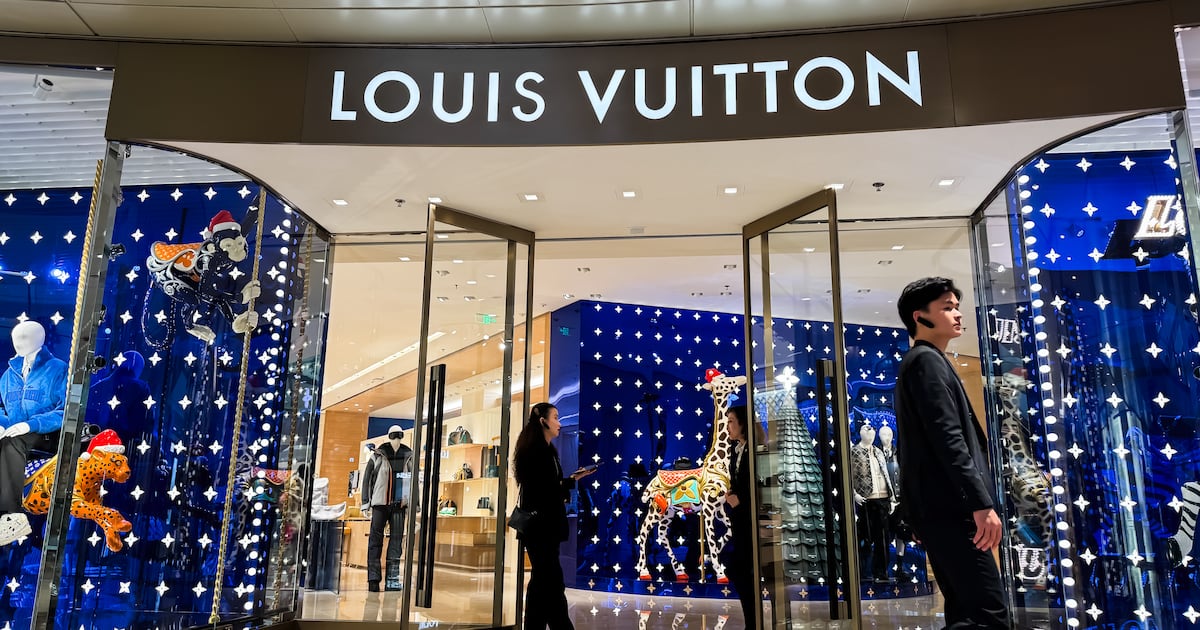Whatâs Happening: LVMH (Tuesday), Brunello Cucinelli (Wednesday), Moncler (Wednesday) and Hermès (Thursday) will report first-quarter results. They are among the first big fashion companies to do so since US President Donald Trump announced â then partially reversed â the highest tariffs in a century.
A Partial Sigh of Relief: Most luxury stocks joined the market rally after Trump postponed tariffs on individual countries (other than China, more on that in a bit). But with a few exceptions, they regained only a fraction of their losses from the previous week.
Not Just Tariffs: Thatâs partly because the luxury sector was preparing for a bumpy 2025 even before Trumpâs April 2 Rose Garden address. The slowing US economy, a sluggish recovery in China and consumer fatigue with high prices and a perception of lacklustre design were all seen weighing on sales.
But Really, Itâs the Tariffs: Even with âreciprocalâ tariffs postponed, the US will still slap a 10 percent tax on imports from all countries, and a whopping 145 percent duty in Chinese goods.
There is a world in which a US-China trade war could benefit European luxury brands, if it prompts the EU and China to forge closer economies ties. The Chinese government could target American labels with investigations, and Chinese consumers may boycott American products. But the impact of tit-for-tat tariffs wonât be contained to the US and China. The uncertainty of the last two weeks, and the promise of more upheaval to come, is weighing heavily on consumer confidence and contributing to recession fears in the US. In China, thereâs potential for trade-related turbulence to snuff out a nascent recovery in consumer demand.
What Earnings Can Tell Us: As the biggest and most diversified luxury player, LVMH will have the most comprehensive view of the situation.
How new chief financial officer Cécile Cabanis describes the landscape in China, and the economic outlook generally, could calm the luxury sector or send fresh shockwaves through it. Also worth keeping an eye on is LVMHâs travel retail business; its DFS duty-free chain could benefit from Americans going abroad for tariff-free purchases, or be hurt by falling travel volumes as the economic outlook darkens.
Hermes and Brunello Cucinelli, meanwhile, will stress test the conventional wisdom that even a trade war wonât keep ultra-wealthy shoppers from their Birkins and cashmere.
What Earnings Canât Tell Us: The biggest luxury companies â even the ones whose executives attended Trumpâs inauguration in January â are just spectators along with the rest of us. And while confirming Jonathan Andersonâs reported arrival at Dior or naming a new Fendi designer would be a nice diversion, earnings calls are rarely the setting for such announcements.
At Least Someoneâs Happy: The one clear winner from the chaos of the last two weeks is Prada, which was able to negotiate a last-minute discount on Versace, which it agreed to buy from Capri Holdings on Thursday for â¬1.25 billion ($1.38 billion). That said, Versaceâs sales have been in free fall, and it will be a major undertaking to right the ship in such a tough market, even for red hot Prada. Itâs a reality Prada Group CEO Andra Guerra acknowledged when he called Versaceâs turnaround a âvery long-termâ effort.
The Week Ahead wants to hear from you! Send tips, suggestions, complaints and compliments to brian.baskin@businessoffashion.com.

